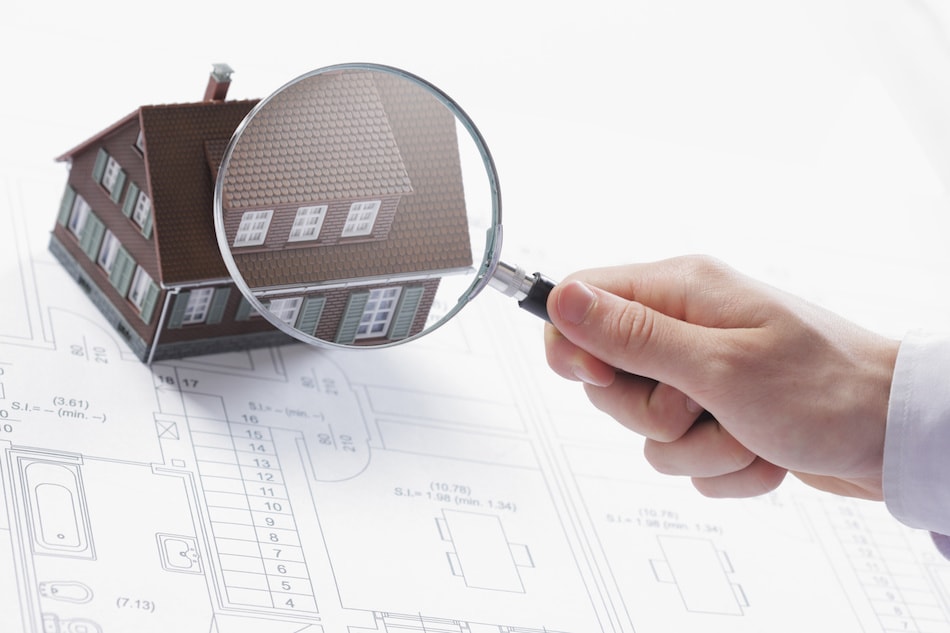Home Inspections: Protecting a Buyer’s Interests
Posted by Gary Ashton on Thursday, August 16th, 2018 at 8:52am.
 One of the more important aspects of the home purchase process is the crucial step of getting a home inspection. While some buyers may see this as another service to skip in order save money, it can have the potential to completely change the rest of the transaction.
One of the more important aspects of the home purchase process is the crucial step of getting a home inspection. While some buyers may see this as another service to skip in order save money, it can have the potential to completely change the rest of the transaction.
During a home inspection, a licensed professional will inspect the home in question from top to bottom, and look for any current problems or clues that there might be issues down the road. If something comes up during the inspection, it could save a buyer from huge financial headaches later on.
Get the Most From the Viewing Process
The first step in avoiding homes that have significant issues begins when you work with your real estate professional to arrange viewings of the homes you are interested in. Instead of trying to fit them all in one day, decide to limit each day's viewing roster. This will allow you to take plenty of time to look each one over carefully, inside and out.
It is also helpful to carry a notepad and pen for making notes as you examine each home, or use the voice note function on your phone to record specific details that you want to remember. If the seller has no objections, you can also use your phone to capture images of specific details or issues you find in the home during the showing.
Opt for Professional Inspections
Even if you fail to note any troubling condition issues during your the home showing, it is always wise to seek the services of a professional home inspector before completing any home purchase. Your real estate professional can help word any purchase offers you make to be contingent upon the results of the home inspection. This ensures that you retain the option to walk away from any home purchase should the home be found to have serious condition issues that cannot be successfully addressed through negotiation with the seller.
What Could a Home Inspection Reveal?
There are several key areas that tend to be problematic if a home or condo unit has not been maintained or updated properly. A home inspection is the best chance a buyer will have to uncover these issues before moving ahead with the sale.
Many times, plumbing problems will be uncovered during a home inspection. This could be a result of older fixtures that haven’t been updated yet, or can be an indication of overall poor home maintenance. No matter what the cause is, leaking or outdated plumbing might be expensive to fix later down the line. If the problem isn’t addressed promptly, a total system replacement might be necessary.
Another common problem that home inspections reveal is degradation of roofing materials. Different types of shingles have different life expectancies, yet it’s important to know how soon the roof will need to be replaced. Sometimes, home inspectors will find that the previous repair work was done poorly and will recommend new roofing right away.
Watch for These Conditions at Each Showing
Even though most homes are prepped carefully when placed on the market, it is often possible to still see condition clues that could indicate potential problems. Some of these clues include:
- Abnormal signs of high humidity, including drip marks on walls and ceilings, fogged up windows, signs of corrosion on vents, wall or floor surfaces that feel damp to the touch and any signs of mold or mildew.
- Cracks in walls or ceilings that go beyond superficial stress cracks that sometimes occur from the normal settlement of the home.
- Uneven floor surfaces or baseboards that seems to differ in height as they go around the room.
- Heating, Air Conditioning and Ventilation can vary depending on where the property is located and if the previous owners prioritized air quality. When taking a tour of the home, make sure it’s comfortable for you and you can breathe easily. Make sure the temperature and humidity level is just right.
- Doors or windows that are very hard to open or close or those that appear to be crooked in their frames.
- Cracks in foundation, basement or exterior masonry walls.
- Outdated or deteriorated wiring, including improper splices, loose or non-functioning switches, excessive use of extension cords in the home, no GFCI outlets and electrical panels that are outdated or too small.
- Areas of erosion or poor drainage around the foundation of the home.
- Tree limbs that rub the home or appear to have rubbed the roof or exterior of the home in the past.
- Missing or broken shingles or roof lines that appear to be sagging. Don’t just check for cracks and breaks; look for moss and algae growth, as well.
- Cracked mortar or missing bricks in the chimney.
- Odors of sewage in or around the home. In some ways, water can be more important than electricity, so it’s important that the plumbing in your prospective house is functional and efficient.
- Security in the neighborhood and around the home. Are the windows made of glass panels? Does the door have a deadbolt lock? Are second floor windows easily reachable? Make sure you answer these questions before you think about moving into your new home.
At the conclusion of a home inspection, the inspector will provide a thorough report detailing their findings.This report can sometimes be in excess of 40 pages and is instrumental in the next stages of the purchasing process. It is essentially the proof a buyer needs if they choose to request that the seller make repairs prior to the purchase of the home.
How To Proceed With A Poor Inspection Report
 Finding out there are problems with a home doesn’t mean it should stop the sale entirely. Many times a buyer will choose several of the most important repairs and ask the seller to complete them before they finalize the purchase. Other times, sellers might sell the home at a lower price to account for the cost of work that needs to be done, or could pitch in more money toward closing costs.
Finding out there are problems with a home doesn’t mean it should stop the sale entirely. Many times a buyer will choose several of the most important repairs and ask the seller to complete them before they finalize the purchase. Other times, sellers might sell the home at a lower price to account for the cost of work that needs to be done, or could pitch in more money toward closing costs.
If the repairs seem too overwhelming or extensive and the seller isn’t willing to negotiate, this may be the time for the buyer to back out of the sale. Just think about the ramifications of purchasing a Brentwood home that hasn’t been inspected, only to find out that you wouldn’t be able to cover the cost of the repairs. In any case, the report serves as a jumping off point to either make negotiations or to find another home to purchase.
Pay Attention to all Disclosure Documents
While most sellers try their best to comply with any current disclosure laws regarding the condition of their homes, the information they provide for buyers can sometimes contain errors or be based on incomplete information obtained from previous owners.
Prospective buyers can minimize the potential damage this type of information can cause by carefully examining disclosure statements and any other pertinent information the sellers provide about the condition of the home or its systems and ask for further documentation, if needed.
In addition, buyers can also contact their local recorder, city clerk or planning and zoning department to obtain any information on file for the home, such as past building permits, tax information and surveys.
Offering Peace Of Mind For Years To Come
Think of a home inspection as something that provides a report card for a home. Depending on the level of work needed to bring the house up to par, it may or may not be worth your while to proceed with a purchase. It helps to keep a balanced perspective and remember that the seller probably won’t agree to repairing every single thing that comes up on the report, yet they could potentially address major issues before the sale is complete. Overall, the importance of a home inspection can’t be stressed enough, and the report it produces will help assist in making a final purchasing decision.
It is important to keep your eyes open when looking at Nashville real estate. With you, your agent, and inspector looking for potential issues, you can feel much more confident moving forward on a home you'd like to live in.

Gary Ashton
The Ashton Real Estate Group of RE/MAX Advantage
The #1 RE/MAX team in the World!
